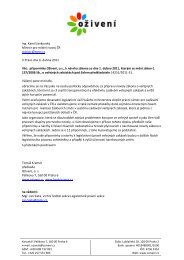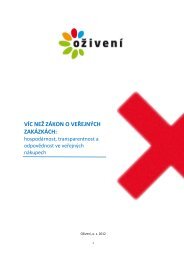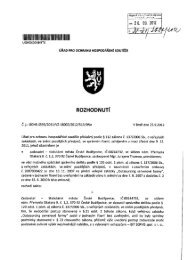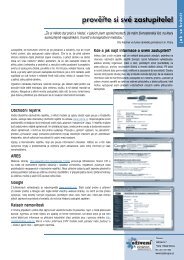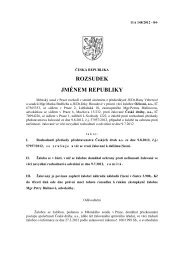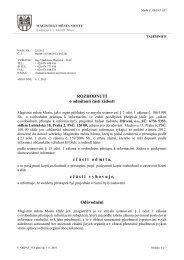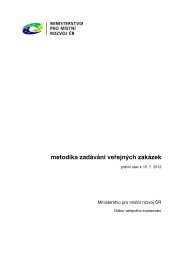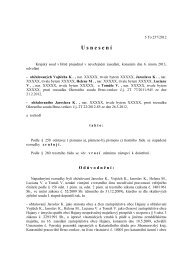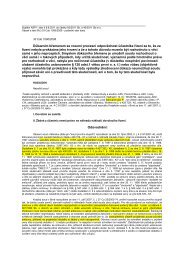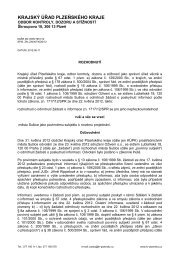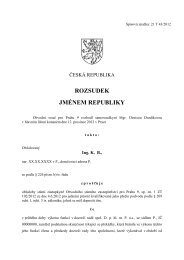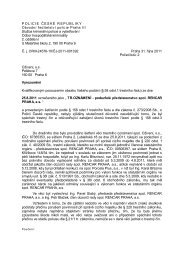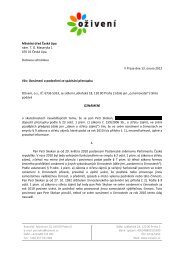Managing Conflict of Interest - Organisation for Economic Co ...
Managing Conflict of Interest - Organisation for Economic Co ...
Managing Conflict of Interest - Organisation for Economic Co ...
You also want an ePaper? Increase the reach of your titles
YUMPU automatically turns print PDFs into web optimized ePapers that Google loves.
Defining <strong><strong>Co</strong>nflict</strong> <strong>of</strong> <strong>Interest</strong> 27abuses, since they themselves were also indulging. Neither the parliamentnor the courts, or the press proved effective in stoppingthem either.Rent seeking and bribery have been associated with both the<strong>for</strong>mation and the implementation <strong>of</strong> the rules and policies on avast scale. Major business interests (the oligarchs) effectively “captured”the state. And there is now a further sinister twist: the FederalService <strong>of</strong> Security (<strong>for</strong>merly the KGB) has effectively gained control<strong>of</strong> some <strong>of</strong> Russia’s largest assets.The interdependence between big money and the political leadershiphas become endemic and has seriously undermined both theworking <strong>of</strong> the economy and the legitimacy <strong>of</strong> the state. The oligarchsdepend on the politicians <strong>for</strong> preferential treatment and havea major influence on policy; the politicians rely on the oligarchs <strong>for</strong>large financial rewards and <strong>for</strong> their political survival. Thus, conflict <strong>of</strong>interest in government remains rampant and largely unchecked.Russia finds itself in a vicious circle because the oligarchs (nowjoined by the FSB), having won control <strong>of</strong> the rules and <strong>of</strong> policies,strongly resist any attempts to re<strong>for</strong>m, and the politicians resistre<strong>for</strong>m because it would weaken their hold on power. The situationhas been aggravated, <strong>for</strong> the reasons explained earlier (by thefact that Russia has become flush with “resource rents”). Althoughthe WGI data show some improvement since the late 1990s, Russiaremains in the bottom quartile.People’s Republic <strong>of</strong> China 18There are some similarities between the People’s Republic <strong>of</strong>China (P.R. China) and Russia. Under Mao’s command economy,there were conflicts <strong>of</strong> interest and corruption at the top; and therewere “in<strong>for</strong>mal practices” lower down that were outside the <strong>for</strong>malrules. Following the movement toward a market economystarting in 1978, corruption also began to rise. The coexistence <strong>of</strong>planning with the free market (especially the coexistence <strong>of</strong> marketand controlled prices) <strong>of</strong>fered huge opportunities <strong>for</strong> fraud; and18This section draws on He, Z. 2000. <strong>Co</strong>rruption and Anti-<strong>Co</strong>rruption inRe<strong>for</strong>m China. <strong>Co</strong>mmunist and Post-<strong>Co</strong>mmunist Studies 33 and Sun, Yan.2005. <strong>Co</strong>rruption, Growth and Re<strong>for</strong>m: The Chinese Enigma. Current History( September).ADB/OECD Anti-<strong>Co</strong>rruption Initiative <strong>for</strong> Asia and the Pacific



